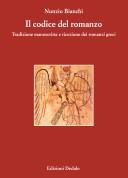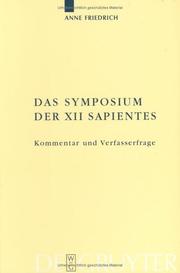| Listing 1 - 6 of 6 |
Sort by
|
Book

ISBN: 2753591512 2753550530 Year: 2022 Publisher: Rennes : Presses universitaires de Rennes,
Abstract | Keywords | Export | Availability | Bookmark
 Loading...
Loading...Choose an application
- Reference Manager
- EndNote
- RefWorks (Direct export to RefWorks)
L'œuvre de Georges Perec (1936-1982) apparaît aujourd'hui sans conteste comme celle d'un classique de la seconde moitié du xxe siècle. Prenant acte de ce statut patrimonial, ce volume se donne un objectif moins rétrospectif - faire le bilan de trois riches décennies de recherche - que prospectif, en s'efforçant de contribuer à la relance d'une activité critique dont le dynamisme semble évidemment lié à l'accession à ce statut de classique. Dans un article devenu célèbre, « Pourquoi lire les classiques ? » (1981), un autre écrivain de l'Oulipo, l'Italien Italo Calvino, avait défi l'œuvre classique par sa lecture, énonçant la proposition suivante : « Toute relecture d'un classique est une découverte, comme la première lecture. » S'agissant de Perec, tout se passe en effet comme si cette canonisation avait bel et bien ouvert le champ des lectures possibles, permettant en particulier le dépassement de la perspective biographique pour l'intégrer à des approches diverses, qu'elles soient théoriques, génétiques, historiques, stylistiques ou plus largement poétiques. C'est de cette diversité, et de cette ouverture, critiques que ce volume rend compte, proposant ainsi une série de « découvertes » (comme le disait Calvino) pour inviter à la relecture d'une œuvre décidément inépuisable.
Literature, Romance --- littérature --- littérature classique

ISBN: 8822058127 9788822058126 Year: 2006 Publisher: Bari : Dedalo,
Abstract | Keywords | Export | Availability | Bookmark
 Loading...
Loading...Choose an application
- Reference Manager
- EndNote
- RefWorks (Direct export to RefWorks)
Classical philology. --- Classical literature --- Appreciation. --- Philologie classique --- Littérature classique --- Appréciation --- Littérature classique --- Appréciation
Book
Year: 1983 Volume: 621 Publisher: Roma-Bari : Laterza,
Abstract | Keywords | Export | Availability | Bookmark
 Loading...
Loading...Choose an application
- Reference Manager
- EndNote
- RefWorks (Direct export to RefWorks)
Greek poetry --- Symposium (Classical literature) --- Poésie grecque --- Symposion(Littérature classique) --- History and criticism --- Histoire et critique
Book
ISBN: 9780521886857 0521886856 9781139047180 1108820190 1139887114 1139564021 1139550446 9786613922878 1139549197 1139555405 1139554158 1139047183 1139551698 1283610426 9781139549196 9781283610421 9781139554152 Year: 2012 Volume: *18 Publisher: Cambridge
Abstract | Keywords | Export | Availability | Bookmark
 Loading...
Loading...Choose an application
- Reference Manager
- EndNote
- RefWorks (Direct export to RefWorks)
Greek traditions of writing about food and the symposium had a long and rich afterlife in the first to fifth centuries CE, in both Greco-Roman and early Christian culture. This book provides an account of the history of the table-talk tradition, derived from Plato's Symposium and other classical texts, focusing among other writers on Plutarch, Athenaeus, Methodius and Macrobius. It also deals with the representation of transgressive, degraded, eccentric types of eating and drinking in Greco-Roman and early Christian prose narrative texts, focusing especially on the Letters of Alciphron, the Greek and Roman novels, especially Apuleius, the Apocryphal Acts of the Apostles and the early saints' lives. It argues that writing about consumption and conversation continued to matter: these works communicated distinctive ideas about how to talk and how to think, distinctive models of the relationship between past and present, distinctive and often destabilising visions of identity and holiness.
Symposium (Classical literature) --- Food in literature. --- Greek literature --- Latin literature --- Christian literature, Early --- Symposion(Littérature classique) --- Aliments dans la littérature --- Littérature grecque --- Littérature latine --- Littérature chrétienne primitive --- History and criticism. --- Histoire et critique --- Symposium (Classical literature). --- Symposion(Littérature classique) --- Aliments dans la littérature --- Littérature grecque --- Littérature latine --- Littérature chrétienne primitive --- Arts and Humanities --- History
Periodical
ISSN: 00029475 10863168 Year: 1880 Publisher: Baltimore, Md Johns Hopkins University Press
Abstract | Keywords | Export | Availability | Bookmark
 Loading...
Loading...Choose an application
- Reference Manager
- EndNote
- RefWorks (Direct export to RefWorks)
Since its founding in 1880 by Basil Lanneau Gildersleeve, The American Journal of Philology has helped to shape American classical scholarship. Today The Journal has achieved worldwide recognition as a forum for international exchange among classicists and philologists by publishing original research in Greek and Roman literature; classic linguistics; and Greek and Roman history, society, religion, and philosophy.
Classical languages --- Classical literature --- Classical philology --- Philology --- Philologie ancienne --- Philologie --- Periodicals --- Périodiques --- Classical philology. --- Philology. --- #FHIW:CAT --- #TS:KOMA --- Arts and Humanities --- General and Others --- Language & Linguistics --- Arts and Humanities. --- General and Others. --- Philologie ancienne. --- Philologie. --- Littérature classique. --- Philosophie. --- Civilisation ancienne. --- Périodiques --- EJHISTO EJLANGU EPUB-ALPHA-A EPUB-PER-FT JSTOR-E MUSE-E --- Philology, Classical --- Classical antiquities --- Greek language --- Greek literature --- Greek philology --- Humanism --- Latin language --- Latin literature --- Latin philology --- Littérature classique. --- Civilization, Classical --- Philology - Periodicals. --- Classical philology - Periodicals. --- Langues classiques

ISBN: 3110170590 3110886634 Year: 2013 Volume: 22 Publisher: Berlin ; Boston : De Gruyter,
Abstract | Keywords | Export | Availability | Bookmark
 Loading...
Loading...Choose an application
- Reference Manager
- EndNote
- RefWorks (Direct export to RefWorks)
The "Carmina XII sapientum" is a corpus of inscriptions from late classical antiquity which was widely received in the Middle Ages and the Renaissance; it consists of twelve cycles of twelve poems, each cycle with a different theme. The titles of the manuscripts name twelve scholars as the authors. The present study provides the first detailed critical commentary on the individual elements of the corpus, dealing with all its textual, linguistic, stylistic and content-related aspects. The commentary on each cycle is preceded by a historical treatment of the motifs. In the process, the author reaches a completely new interpretation of this collection of epigrams. She presents it as a jocular work in the ancient literary tradition of the symposium; it was produced at the turn of the 4th century AD by a rhetorically skilled author already versed in Christian discourses, probably by the rhetor and later Christian apologist Lactantius. Unter dem Namen "Carmina XII sapientum" ist ein spätantikes, in Mittelalter und Renaissance breit rezipiertes Inschriftencorpus überliefert, das sich aus zwölf thematisch unterschiedlichen Zyklen zu je zwölf Gedichten zusammensetzt. Als deren Verfasser nennen die Tituli der Handschriften zwölf Gelehrte. In dieser Arbeit erfährt das Corpus erstmalig eine detaillierte Einzelkommentierung, die alle textkritischen, sprachlich-stilistischen und inhaltlichen Aspekte berücksichtigt. Der Kommentierung eines jeden Zyklus geht eine Aufarbeitung seines motivgeschichtlichen Horizontes voraus. Die Autorin kommt dabei zu einer völlig neuen Deutung der Epigrammsammlung. Sie ist als ein in die antike literarische Gattung der Symposien einzuordnendes scherzhaftes Werk zu verstehen, das von einer rhetorisch geschulten, bereits christliche Diskurse rezipierenden Autorenpersönlichkeit an der Schwelle des 4. Jhs. n. Chr. verfasst wurde, wahrscheinlich vom Rhetor und späteren Apologet Lactanz.
Cycles (Literature) --- Cycles (Littérature) --- Cycli (Literatuur) --- Eruditie in de literatuur --- Erudition dans la littérature --- Learning and scholarship in literature --- Symposium (Classical literature) --- Symposion(Littérature classique) --- Lactantius, --- Carmina duodecim sapientum. --- Latin epigrams --- Lactantius --- Epigrams, Latin. --- Learning and scholarship in literature. --- Cycles (Literature). --- Symposion(Littérature classique) --- Epigrams, Latin --- Learning and scholarship --- Literature --- Sequels (Literature) --- Erudition --- Scholarship --- Civilization --- Intellectual life --- Education --- Learned institutions and societies --- Research --- Scholars --- History and criticism --- Firmianus, Lucius Caecilius, --- Lactance, --- Lactantius Firmianus, --- Lactantius, L. C. F. --- Lactantius, Lucius Caecilius Firmianus --- Lactantius, Lucius Caecilius Firmianus, --- Lactanz, --- Laktancius Firmianus, --- Laktant︠s︡iĭ, --- Lattanzio, --- Authorship. --- Carmina XII sapientum --- Versus XII sapientum --- Versus duodecim sapientum --- Hexastica duodecim sapientum --- Hexastica XII sapientum --- Hexasticha XII sapientum --- Hexasticha duodecim sapientum --- Symposium XII sapientum --- Symposium duodecim sapientum --- History and criticism. --- Latin poetry --- Poésie latine --- Criticism, Textual --- Critique textuelle --- Authorship --- Carmina duodecim sapientum --- Epigrams [Latin] --- Poetry
| Listing 1 - 6 of 6 |
Sort by
|

 Search
Search Feedback
Feedback About UniCat
About UniCat  Help
Help News
News